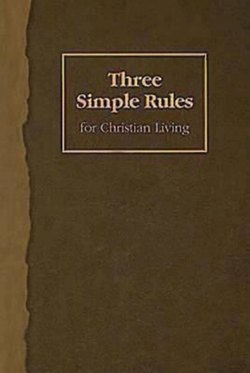Читать книгу Three Simple Rules for Christian Living - Rueben P. Job - Страница 11
На сайте Литреса книга снята с продажи.
John Wesley's General Rules
ОглавлениеWhen Wesley composed the General Rules for the societies, bands, and classes of the early Methodist movement, he listed some examples of harm to avoid.1 Job describes them as sounding "quaint and dated" to our ears (Three Simple Rules; p. 17). Twenty-first-century Christians may be surprised at how many of these ways of doing harm have an economic dimension—working on Sunday, buying and selling on Sunday, slaveholding, not paying sales taxes, participating in usury (lending money at unlawful or exorbitant rates), wearing expensive clothing or jewelry, buying or selling distilled alcohol. Some of these are about harm done to our relationship with God and with other people, and some are about both.
Wesley's list represents what he saw, and much of it was about harm to the poor. Using sources of knowledge available to him in the 18th century, Wesley looked for the root causes of poverty and saw that the shift from an agrarian economy to an industrial one was part of the problem. Britain had fenced off common land. Small farmers were getting poorer while the wealthy were getting richer from agriculture. Unskilled workers left the countryside in search of jobs in the city, sometimes to no avail. Households in the country suffered from lack of income while the increased number of unskilled workers in cities drove down wages. Some of these ways of doing harm were related to the indulgences and luxuries of the rich. Spending money on unnecessary items was a stewardship issue. Resources that could have helped the poor were often wasted by those who had money. The use of distilled alcohol and the number of horses owned by the wealthy were driving up the price of grain. Wesley saw these factors as robbing the poor.2
